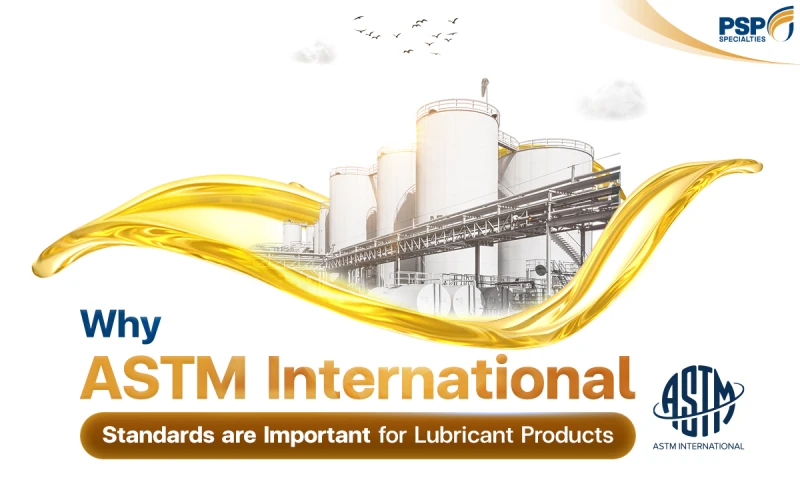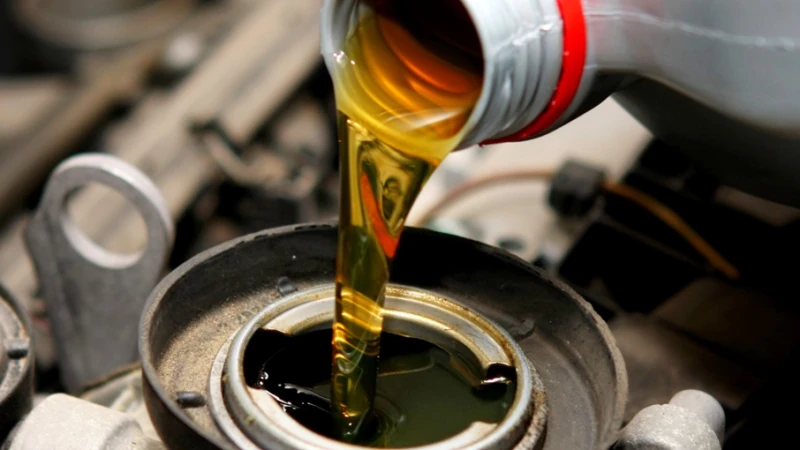Why ASTM International Standards are Important for Lubricant Products

Lubricant products are fundamental across multiple industries, including automotive and various business sectors, as they are integral to maintaining and extending the lifespan of machinery and engines. However, not all lubricants offer the same efficiency. High-quality lubricants should comply with certification standards such as ASTM International to ensure that safety and performance criteria are met. Discover the benefits of lubricants that comply with ASTM International standards in this article.
What are Lubricant Products?
Commonly known lubricant products, or lubricating oils, are used for the maintenance of machinery and engines. Typically, lubricating oils comprise base oils and additives such as rust inhibitors and detergents.
The necessity for lubricant products arises due to the continuous operation of machinery, often under conditions that can negatively impact them and must endure such conditions for extended periods. Additionally, there is pressure and friction during machine operation. Therefore, the use of lubricants provides the following benefits:
- Prevents corrosion
- Enhances the efficiency of engines and machinery
- Cleans and removes contaminants
- Extends the lifespan of engines and machinery
- Dissipates heat from engines and machinery
Different types of machinery and engines require specific types of lubricants, making the choice of the right lubricant crucial. Lubricants adhering to international standards offer confidence in both safety and performance.

What is ASTM International?
ASTM stands for the American Society for Testing and Materials, now known as ASTM International. Founded in 1898, this non-profit organization aims to develop standards for materials, products, systems, and services used across various industries. The organization collaborates with academic volunteers and experts in related fields, boasting a membership of over 35,000 individuals.
ASTM International standards are widely recognized, including in the field of lubricants, and are categorized as follows:
- Standard Specification - These standards relate to the properties and characteristics of materials, often represented numerically for evaluation and calculation purposes.
- Standard Practice Guide - These standards address operational procedures, precautions, tool usage, installation, maintenance, and disposal, as well as sampling and report writing.
- Standard Test Method - These standards define the methods for testing and measurement to obtain evaluative results.
- Standard Classification - These standards are used for grouping or categorizing various types of materials or products.
- Terminology Standard - These standards provide definitions, terminology, abbreviations, and symbols.
Certification by ASTM International offers multiple advantages, including:
- Indicating high quality and consistency through standardized production processes.
- Ensuring safety in products, materials, and related processes.
- Facilitating global business expansion due to the widespread acceptance of the standards.
- Providing a competitive advantage with quality assurance in products and systems.
- Saving money for businesses by minimizing errors and optimizing resource use.
Therefore, High-quality lubricant products should be certified by ASTM International, indicating they are excellent quality oils produced using safe and efficient methods, thereby gaining international trust.
Types of Lubricant Products
Even though they are certified by ASTM International, lubricating products are not necessarily suitable for every type of engine or machinery. There are various types of lubricating products, so it is essential to choose the appropriate one as follows:
- Lubricating Products for Automotive
- Lubricants for Diesel Engines
- Lubricants for Gasoline Engines
- Lubricants for Motorcycles
- Lubricants for Automotive Gears
- Lubricants for Natural Gas Engines
- Lubricants for Marine Engines
- Lubricating Products for Industry
- Industrial Engine Oil
- Industrial Gear Oil
- Hydraulic Oil
- Heat Transfer Oil
- Metalworking Fluid
- White Oil
- Turbine Oil
- Compressor Oil
- Transformer Oil
- Rubber Process Oil
- Grease

Conclusion
Good lubricant products must meet recognized standards, such as ASTM International, known globally. These standards ensure consistent production, inspection, and reliable quality of lubricants.
For high-standard lubricants with a wide range of options to meet all usage needs, consider P.S.P lubricant products that comply with ASTM International, TISI, API, and IEC standards. Rest assured, these lubricants are highly effective in maintaining and extending the lifespan of both engines and machinery.

